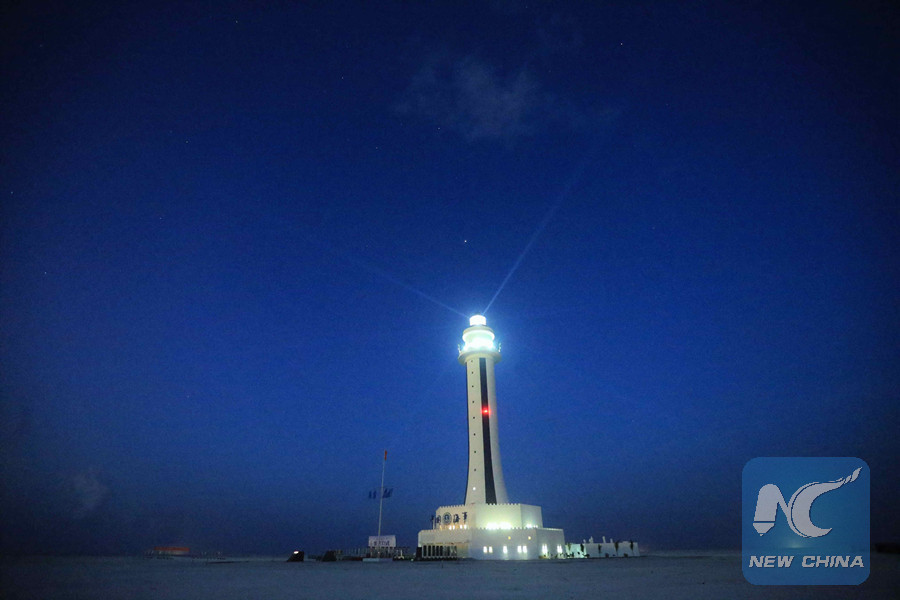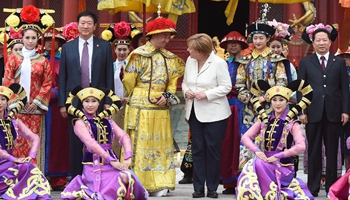
Photo taken on April 5, 2016 shows the lighthouse on Zhubi Reef of Nansha Islands in the South China Sea, south China. (Xinhua file photo)
PARIS, June 14 (Xinhua) -- Chinese Ambassador to France Zhai Jun stressed the "South China Sea issue could not be solved without direct dialogue and joint efforts of different countries," and preserving peace and stability in the region was "in the interest of all."
In a signed article entitled "Some clarification on the issue of the South China Sea" published by the business daily Les Echos on Monday, the Chinese diplomat said an alternative would be within reach if all countries concerned show a responsible attitude and work together to bridge their differences via friendly consultations and negotiations.
"We regret the decision of the Philippines to unilaterally resort to international arbitration to resolve the dispute with China over the South China Sea," he wrote.
The Philippines claims before the arbitration tribunal in The Hague concern sovereignty over the islands in the South China Sea and the delimitation of the maritime borders between the two countries.
But in 2006, the Chinese government already rejected any arbitration for disputes concerning the delimitation of maritime areas, historic bays, military activities, and acts of law enforcement, he added.
"China will not accept and will not recognize the ruling (of) the tribunal, and expresses its deep concern about the abusive and arbitrary extension of the court's powers," the Chinese ambassador to France said.
Zhai stressed arbitration initiated by the Philippines violated a bilateral agreement to end the dispute through negotiation and consultations, adding the court's decision was against the basic principles and specific provisions of the UN Convention on the Law of the Sea.
"Both the arbitration procedure and the tribunal's decision are for us null and void," he stressed.
The Chinese were among the first people to explore the oceans and the Chinese maritime presence is very ancient. In fact, the country's government started very early to exercise administrative authority over the islands and archipelagos of the zone whose names appear on the official maps of the Ming Dynasty (1368-1644), Zhai wrote.
At the end of the Second World War, China took back the islands and archipelagos of the South China Sea that Japan had seized during the war. Over the period, China also published the map of its territories in the South China Sea, proclaiming its sovereignty and its rights in this area. No country has expressed any objection in this regard, he added.
In the 1970s, following the discovery of oil and gas resources in the South China Sea, several countries began to demand rights in this area and to send military troops to occupy the islands and reefs.
Faced with this situation, China could have exercised its right of self-defense, as it did in 1974 for the Xisha Islands. Meanwhile, it has chosen, while reaffirming its sovereignty over the islands and reefs, to resolve disputes through bilateral negotiations and consultations with the concerned countries, Zhai explained.
In 2002, China and ASEAN states agreed on a declaration on the conduct of parties in the South China Sea, which helped to keep the situation in the zone under control for a long time.
From 1991 to 2010, trade between China and ASEAN countries grew from less than 8 billion U.S. dollars to nearly 300 billion U.S. dollars, proving "this principle is indeed the right solution to the issue of the South China Sea," the Chinese ambassador concluded.











